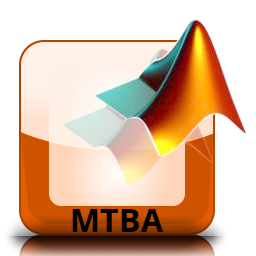MTBA: A MATLAB Toolbox for Biclustering Analysis
|

About
Biclustering is a popular approach to analyze patterns in a dataset, especially those of biological origin such as gene expression data. Biclustering performs better than classical clustering techniques under certain data sets, since it can simultaneously cluster both rows and columns of matrix unlike the latter. As a result, submatrices exhibiting unique patterns can be revealed helping us to better understand the relationship between row and column variables. We introduce a new Matlab toolbox designed to perform a variety of biclustering algorithms under a common user interface. Although some implementations are available for the proposed biclustering algorithms, each program is accompanied by a different user interface and use different input-output formats. MTBA tries to fill this gap by providing multiple functionalities for data handling, preprocessing, biclustering and visualization.
How to cite?
Please cite the following paper:
The text format is:
J. K. Gupta, S. Singh and N. K. Verma, MTBA: MATLAB Toolbox for Biclustering Analysis
, IEEE Workshop on Computational Intelligence: Theories, Applications and Future Directions, IIT Kanpur, India, pp. 94-97, July 2013.
The bibtex format is:
@inproceedings{verma2013ranking,title={MTBA: MATLAB Toolbox for Biclustering Analysis}, author={J. K. Gupta, S. Singh, N. K. Verma},pages={94-97},year={2013},organization={IEEE}}
Key Features
Algorithms:
Acknowledgements
We would like to thank all members of Intelligent Data Engineering and Automation Group at IIT-K for valuable discussions and suggestions. We are also grateful to Andrey Shabalin for graciously releasing the LAS code under LGPL and allowing us to port it to our toolbox.